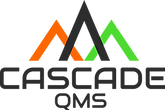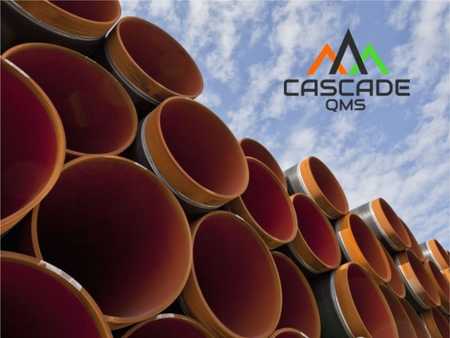What is Veriforce®?
Veriforce® is a company that provides certification and compliance services to contractors and suppliers working in the oil and gas industry. The requirements for Veriforce® certification depend on the specific certification program and the hiring client’s requirements but generally include the following:
-
Compliance with safety regulations: Contractors and suppliers seeking Veriforce® certification must comply with all relevant safety regulations and industry standards, including those set forth by OSHA, the DOT, and the EPA.
-
Documentation of safety programs: Contractors and suppliers must provide documentation of their safety programs, including policies and procedures related to hazard communication, PPE, incident reporting, and emergency response.
-
Employee training: Contractors and suppliers must provide evidence of employee training on safety-related topics, such as hazard recognition, safe work practices, and the proper use of PPE.
-
Equipment certification: Contractors and suppliers must provide evidence of equipment certification and inspection records for all equipment used on job sites.
-
Insurance and liability coverage: Contractors and suppliers must provide proof of insurance and liability coverage that meets or exceeds the hiring client’s requirements.
-
Background checks: Contractors and suppliers must undergo background checks to ensure that their employees have the necessary qualifications and do not have a history of safety violations or criminal activity.
The requirements for Veriforce® certification are designed to ensure that contractors and suppliers meet the highest standards of safety and compliance in the oil and gas industry.
Does Veriforce® require safety programs?
Yes, Veriforce® does require safety programs as part of its certification process for contractors and suppliers working in the oil and gas industry. The safety programs must be documented and demonstrate compliance with all relevant safety regulations and industry standards, such as those set forth by OSHA, the DOT, and the EPA.
The safety programs must include policies and procedures related to hazard communication, PPE, incident reporting, and emergency response. In addition, Veriforce® requires evidence of employee training on safety-related topics, such as hazard recognition, safe work practices, and the proper use of PPE.
By requiring safety programs, Veriforce® helps ensure that contractors and suppliers have a strong safety culture. It also ensures companies are committed to providing a safe working environment for their employees and for the communities in which they operate. This helps reduce the risk of accidents, injuries, and environmental incidents and ultimately contributes to a safer and more sustainable oil and gas industry.
How many programs does Veriforce® require?
The number of safety programs required for Veriforce® certification will depend on the specific certification program and the requirements of the hiring client. Veriforce® offers a range of certification programs for contractors and suppliers working in the oil and gas industry, including programs for pipeline operations, facility operations, and contractor safety management.
What types of programs does Veriforce® require?
Each certification program has its own set of requirements, which may include multiple safety programs addressing various aspects of safety and compliance. For example, the Veriforce® Contractor Safety Management Program requires a comprehensive safety program that covers hazard communication, PPE, incident reporting and investigation, and emergency response, among other topics.
To determine the specific safety programs required for Veriforce® certification, you should consult the certification program’s guidelines and the hiring client’s requirements. This information must obtained directly from Veriforce® or from the hiring client.
Safety Programs for YOUR Business
The type of safety programs your company needs will vary. Specific hazards and risks associated with your operations and the requirements of the regulatory agencies and hiring clients must be considered. However, there are some general safety programs that are common across many industries. Common programs are considered essential for protecting the health and safety of employees.
Common Safety Programs
- Hazard Communication Program: Procedures for identifying and communicating hazards associated with chemicals and other hazardous materials used in the workplace. Includes a written hazard communication plan, employee training on hazard communication, and procedures for labeling and storing hazardous materials.
- Respiratory Protection Program: Outlines procedures for protecting employees from respiratory hazards, such as dust, fumes, and chemicals. Includes procedures for selecting and using respiratory protection equipment. Employee training on respiratory hazards and protection, and medical evaluations for respirator users.
- Personal Protective Equipment (PPE) Program: Procedures for selecting, using, and maintaining PPE, such as hard hats, safety glasses, gloves, and safety shoes. Includes employee training on the use and care of PPE, procedures for inspecting and replacing damaged PPE. States that PPE is provided at no cost to employees.
- Emergency Action Plan: Outlines procedures for responding to emergencies, such as fires, natural disasters, and medical emergencies. The program should include procedures for evacuating the workplace, contacting emergency services, and accounting for all employees after an emergency.
- Injury and Illness Prevention Program (IIPP): Outlines procedures for identifying and controlling workplace hazards. Focuses on preventing workplace injuries and illnesses. Must include procedures for hazard identification, employee training on safety procedures, and procedures for investigating and reporting workplace incidents.
It’s important to note that the specific safety programs your company needs varies depending on your industry, operations, and regulatory requirements.
Cascade QMS can help you identify the specific safety programs you need. Additionally, we will help develop a comprehensive safety management system for your company. Our program vault grows every day! Request your free consultation today!


